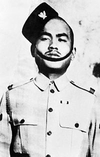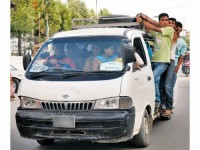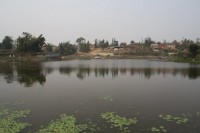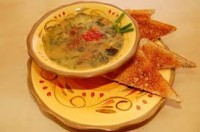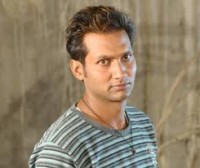British Gurkhas honored with Victorian Cross
Nepalese are known not only for their hospitality but also their bravery and courage. Nepal, the land of brave Gorkha had fought bravely during the Anglo-Nepalese war and kept their nation independent from the British invasion because of which they are considered as the bravest people in the world. Many army chiefs and also the British Prince Harry have praised the Gurkhas for their courage and bravery. After the end of the Nepalese war and signing of the treaty, many Gurkha soldiers were sent to Indian as well as British army and many of them fought bravely during the Second World War. The brave Nepali soldiers serving in the foreign land of British are known as the British Gurkhas. Some of the Gurkhas who fought bravely during the World War II and received the Victorian Cross, the highest and most prestigious award for bravery that is awarded to British and Commonwealth forces are mentioned below.
Gaje Ghale
Born on August 1, 1918, Gaje Ghale served as Hon. Captain in the 5th Royal Gurkha Rifles unit in the British Indian Army during the World War II. Originally from Barpak VDC in Gorkha district in Nepal, he served in army from 1936 to 1964 and died at the age of 81 on March 28, 2000.
Lachhiman Gurung
He was born on December 30, 1917 in the village of Dakhani in Tanahu district of Nepal. He served as a rifleman in the 4th Battalion, 8th Gurkha Rifles in the Indian Army during the Second World War. On 19 December 1945, he received his Victorian Cross from the Viceroy of Indian Field Marshal Lord Wavell at the Red Ford in Delhi. Gurung, one of the bravest Gurkha soldiers to fight in the World War II died on December 12, 2010 at the age of 93. His medal is held in possession of his parent unit, the 4th Battalion, 8th Gurkha Rifles in India.
Sher Bahadur Thapa
Born on November 20, 1921, in Ghalechap of Tanahu district in Nepal, Sher Bahadur Thapa was enrolled in the army at the age of 22 years in 1942 as a Rifleman in the 1st Battalion of the 9th Gurkha Rifles in the British Indian Army during the World War II. His Victorian Cross is held by his regiment 9th Gorkha Rifles in India.
Thaman Gurung
Born on 2 October 1924, Thaman Gurung joined the army at the age of 20 years as a Rifleman in the 1st Battalion, 5th Royal Gurkha Rifles in the Indian Army during World War II. He died on 10 November 1944 when he was at Monte San Bartolo in Italy where he was one of the two acting scout to a fighting patrol.
Netrabahadur Thapa
Netrabahadur Thapa was born on 8 January 1916 and on 25-26 June 1944 he was made an acting Subedar of the 2nd Battalion of the 5th Royal Gurkha Rifles in the Indian Army during the World War II. He was in command of a small isolated hill post at Bishenpur, India when Japanese army attacked in force. Thapa had retrieved the reinforcements’ ammunition himself and attacked with grenade and Khukuris until he was killed. He received his Victorian Cross for this brave act.
Tul Bahadur Pun
The recipient of the Victorian Cross as well as ten other medals including Burma Star, Tul Bahadur Pun was one of the brave Gurkhas to fight in the World War II. He was a Rifleman in the 3rd Battalion, 6th Gurkha Rifles in the Indian Army during the World War II. He had also achieved the rank of Honorary Lieutenant. His medals include Victorian Cross, Burma Star, 1939-1945 Star, Indian Service Medal, Indian General Service Medal (1918), Queen Elizabeth II Coronation Medal (1953), Queen Elizabeth II Silver Jubilee Medal (1977), Queen Elizabeth II Golden Jubilee Medal (2002), Army Long Service and Good Conduct Medal and India Independence Medal. He died on 20 April 2011 and his Victorian Cross is displayed at the Gurkha Museum in Winchester, Hampshire England.
Bhanbhagta Gurung
Bhanbhagta Gurung, also known as Havildar Bhanbhagta Gurung was born on September 1921 in Phalpu, a small hill village in Gorkha district. He received the award while he served as a Rifleman with the 3rd Battalion of the 2nd Gurkha Rifles in Burma during the World War II. He was enlisted in the British Indian Army during the World War II at the age of eighteen. He died at the age of 86 on March 1, 2008. His Victorian Cross is displayed at The Gurkha Museum at Winchester, Hampshire in England.


